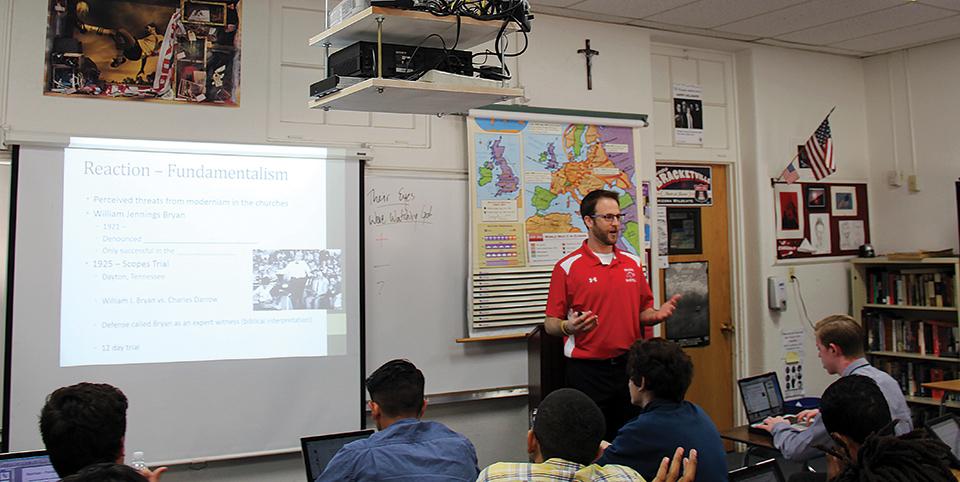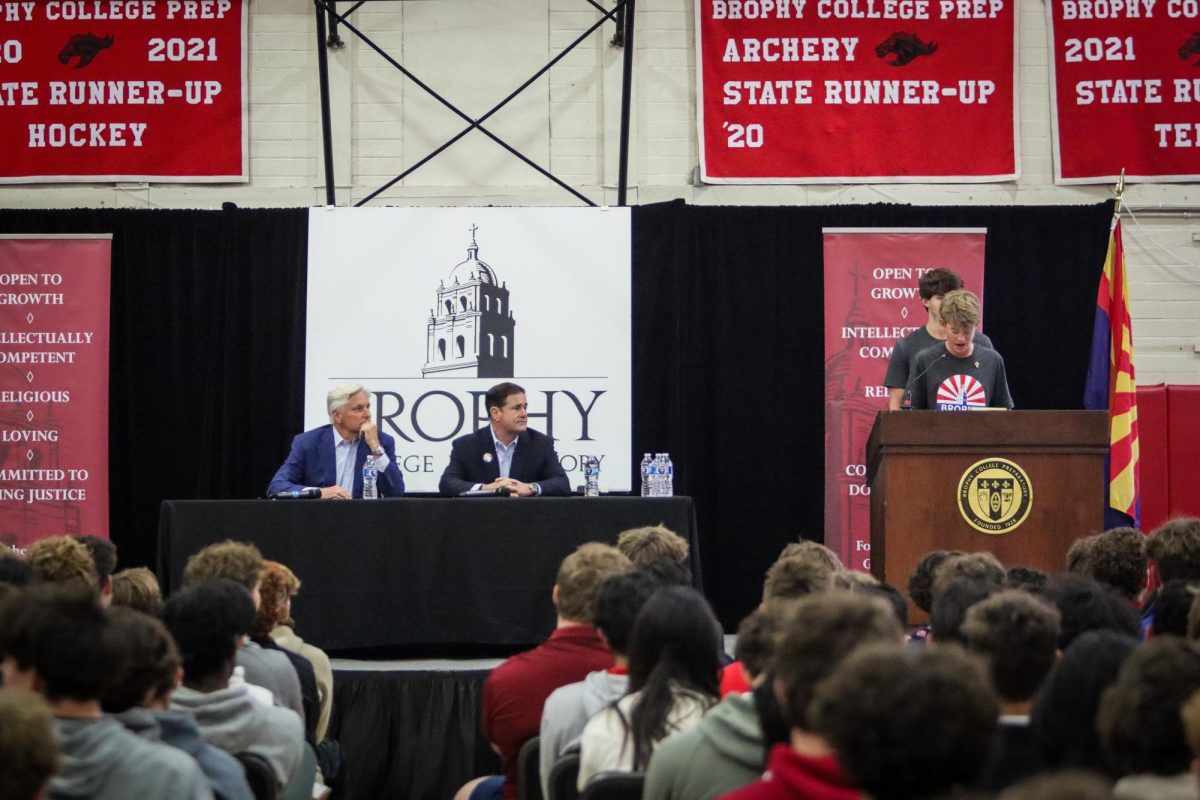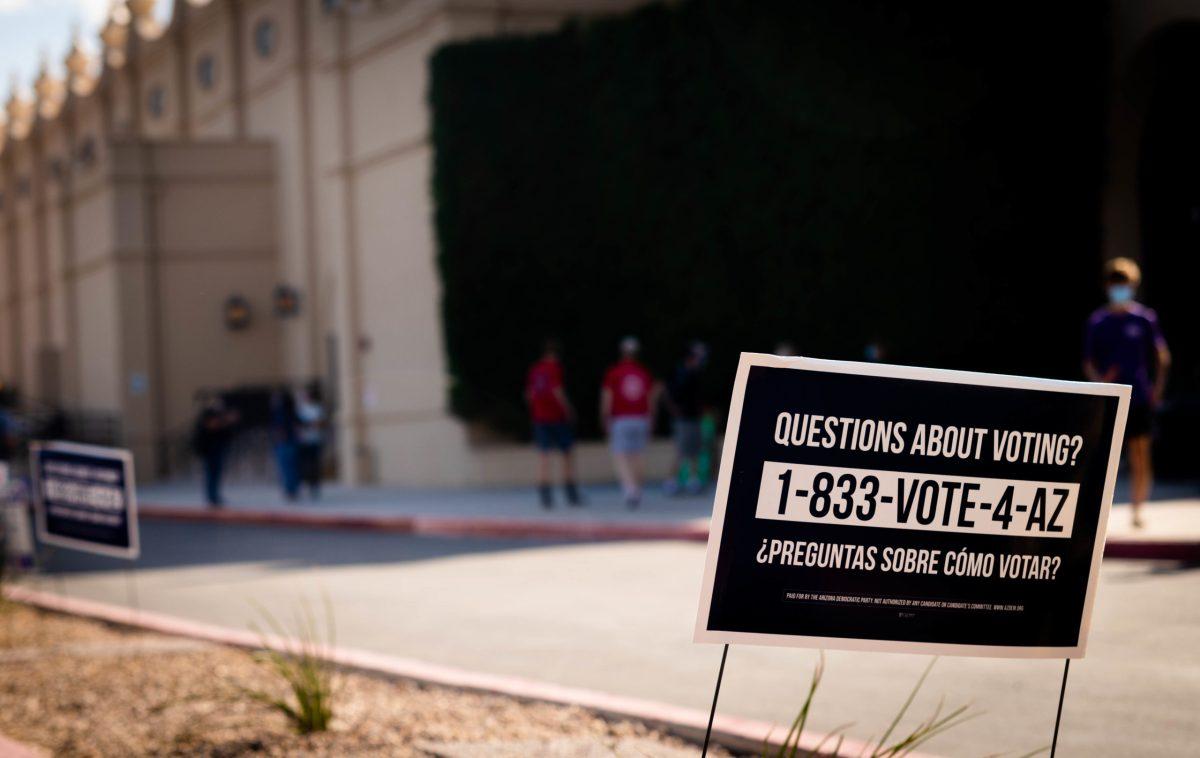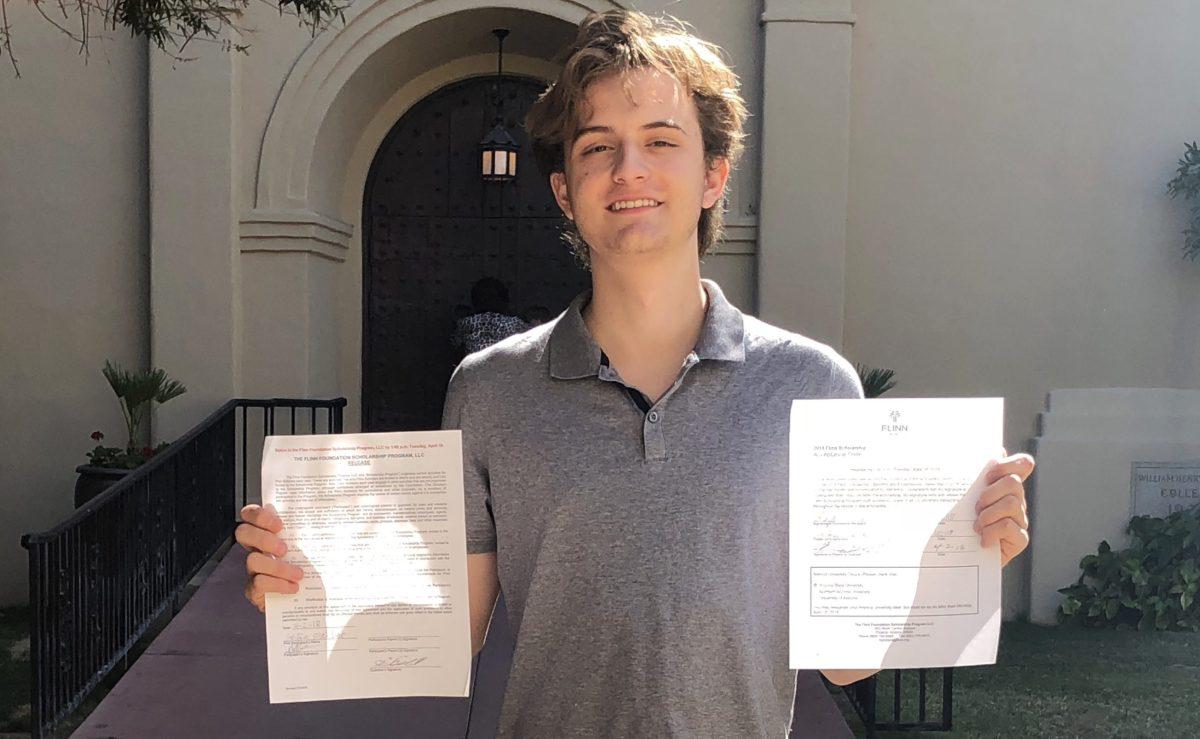Photo by CameronBray ’16 — Mr. Matt Hooten teaches an AP U.S. History class Feb. 23rd in Brophy Hall. Some convervatives across the country want to ban the class because they say it is “revisionist” and “anti American.”
By Cameron M. Bray ’16
THE ROUNDUP
It seems that AP U.S. History has become the most controversial course offered by the College Board.
Disliking the revisions recently introduced by the College Board, conservatives have labeled the new test as “revisionist” and “anti-American,” arguing that it unfairly emphasizes the negative aspects of U.S. history.
Their fears are largely unjustified.
One such conservative, Ken Mercer, a member of the Texas State Board of Education, wrote in a resolution that the new framework “reflects a view of American history that is critical of American exceptionalism, the free enterprise system and emphasizes negative aspects of our nation’s history while minimizing positive aspects,” according to a CNN article investigating the controversy.
Mercer’s article was so strongly written that it gained the attention of the Republican National Committee.
In fact, the RNC itself wrote that the new framework is a “radically revisionist view of American history that emphasizes negative aspects of our nation’s history while omitting or minimizing positive aspects,” according to an article from Slate also addressing the controversy.
Focusing mainly on the College Board’s framework, these conservative groups argue that the framework is “anti-American,” since it does not explicitly reference documents such as the Declaration of Independence—documents that make America look good.
They forget, however, that it is simply an outline. It is not a set of directives that must be followed in order to teach AP U.S. History.
In other words, the College Board does not say that teachers must teach the course exactly this way.
On the contrary, the framework offer teachers quite a bit of freedom, as AP U.S. History teacher and Social Studies Chair Mr. Matt Hooten can attest.
“I think first of all it’s a framework … It’s not the entirety of the course,” Mr. Hooten said. “So instructors have freedom to be able to bring in a lot of other things.”
In fact, Mr. Hooten referenced the fact that, due to the new AP U.S. History structure, he and his students were able to spend more time discussing Native American tribes and cultures before European contact.
Now, in terms of accuracy, the AP U.S. History course is spot-on. It is not this “revisionist,” America-hating monster that conservatives claim it to be.
Before the revisions went into effect, the College Board, according to a page on its own website discussing the changes, solicited feedback from more than 400 AP teachers, as well as 58 college and university U.S. History professors.
Of these 458 educators or so, 98 percent said that the framework provided a balanced picture of U.S. history.
The experts have spoken, so the idea that the new AP U.S. History course is “biased,” “revisionist” or “anti-American” is simply ridiculous.
Even more ridiculous, however, are the attempts of state legislatures to ban the course.
That hasn’t happened in Arizona yet, but it has in six other states.
While it may be fair to express criticisms or qualms about the new course, it is simply laughable to throw up one’s hands and say, “We need to ban AP U.S. History.”
That course of action is unreasonable and extreme.
Yet that is what conservative lawmakers are doing in states such as Oklahoma, Georgia, Nebraska, North Carolina, Tennessee and Texas.
In Oklahoma a bill proposed by lawmaker Dan Fisher to defund AP U.S. History was approved by the Education Committee Feb. 16 on an 11-to-four vote.
However, Fisher said on Feb. 18 that he was going to rewrite the controversial bill for clarification, so it has not gone into effect.
In my opinion, measures such as these to defund AP U.S. History are unwarranted, unreasonable and extreme.
Not only do they deny aspiring high school students the chance to earn college credit, which Mr. Hooten said was a disservice to them, but they also threaten to undermine public education in America.


























Riley Morrison • Mar 18, 2015 at 8:49 pm
Preach Cameron! Great article.